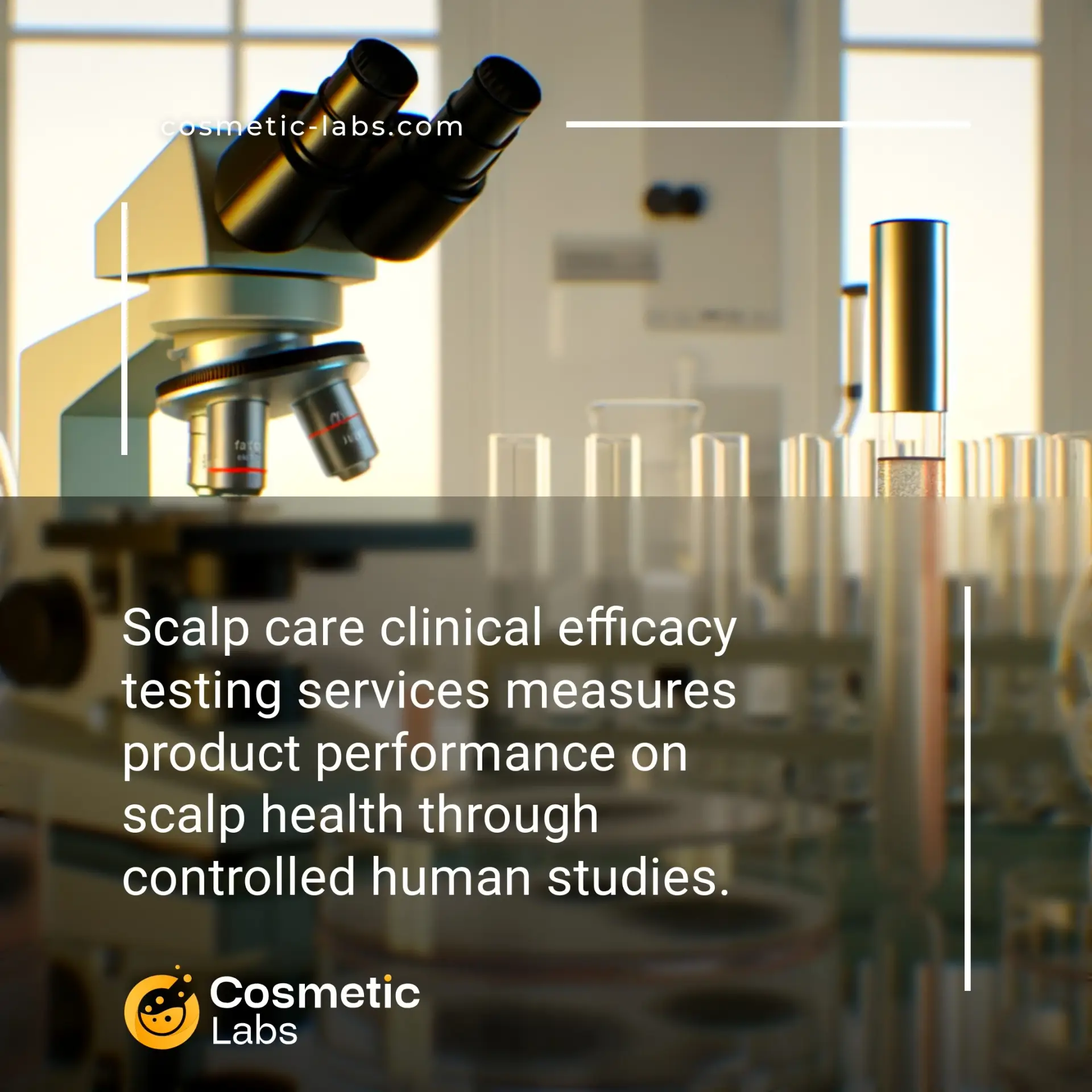Scalp Care Clinical Testing Services for Beauty Brands

What is Scalp care efficacy testing?
Scalp care clinical efficacy testing services validate the performance claims of shampoos, treatments, and scalp health products through controlled studies measuring dandruff reduction, sebum control, and hair follicle health. Labs conduct instrumental assessments and consumer trials over 4-12 week periods, documenting measurable improvements in scalp condition using dermoscopy and sebum measurement tools to support your marketing claims with scientific data.
Why do you need this service?
Brands use scalp health validation studies to prove anti-dandruff shampoos reduce flaking by 70% within 4 weeks, while hair growth serums demonstrate measurable follicle stimulation through trichoscopy analysis. These controlled trials generate regulatory-compliant data that supports marketing claims and satisfies FDA requirements for cosmetic efficacy statements.
Who provides Scalp care efficacy testing services?
All cosmetic labs providing Scalp care efficacy testing services
Scalp Health Clinical Efficacy Testing Services
Scalp care products require specialized testing protocols that go beyond standard cosmetic evaluations. Our partner labs validate your formulations through controlled studies that measure dandruff reduction, sebum regulation, and scalp microbiome balance using clinical-grade instrumentation.
Dermatological Assessment Protocols
Labs run scalp health clinical studies using trichoscopy, sebum measurement devices, and pH monitoring to track product performance over 4-12 week periods. These studies typically involve 20-50 participants with specific scalp conditions like seborrheic dermatitis or excessive oiliness.
Testing protocols include:
- Dandruff severity scoring using standardized scales
- Sebum production measurement via Sebumeter readings
- Scalp irritation assessment through patch testing
- Microbiome analysis before and after treatment
Results provide statistical data you can use in marketing claims and regulatory submissions.
Functional Performance Validation
Beyond dermatological safety, labs test how well your products deliver on scalp conditioning and hair follicle health promises. Instrumental analysis measures moisture retention, barrier function, and anti-inflammatory activity through standardized protocols.
Key performance metrics include:
- Transepidermal water loss (TEWL) measurements
- Scalp hydration levels via corneometry
- Anti-dandruff efficacy through fungal culture testing
- Follicle stimulation assessment using hair growth analysis
Connect with experienced testing labs on our platform to design custom scalp care studies that support your product claims with solid clinical evidence.
Practical Applications of Scalp Care Clinical Efficacy Testing
Brands rely on scalp care clinical efficacy testing applications to validate product claims and meet regulatory requirements across diverse market segments.
Anti-Dandruff and Seborrheic Dermatitis Product Validation
Labs conduct controlled studies measuring dandruff flake reduction using standardized visual grading scales and digital image analysis. Testing protocols typically span 4-8 weeks with 30-50 participants experiencing mild to moderate dandruff conditions.
Sebum production measurements through sebotapes and corneometry readings track oil control effectiveness. Objective data collection includes scalp pH monitoring, microbial analysis for Malassezia species, and participant self-assessment questionnaires rating itching and irritation levels.
| Test Parameter | Measurement Method | Timeline | Typical Improvement Range |
|---|---|---|---|
| Dandruff Flake Count | Digital imaging + visual grading | 4-8 weeks | 25-60% reduction |
| Sebum Production | Sebotape analysis | 2-6 weeks | 15-40% reduction |
| Scalp Irritation | Subject questionnaire | 1-4 weeks | 30-70% improvement |
| Microbial Balance | Culture analysis | 4-12 weeks | 20-50% reduction |
Hair Growth Stimulation and Follicle Health Assessment
Trichoscopy and phototrichogram analysis measure hair density changes, anagen/telogen ratios, and follicle diameter variations. Studies document new hair growth through standardized photography and computerized hair counting systems over 12-24 week periods.
Dermatoscopic evaluation tracks follicle health indicators including perifollicular erythema, follicular keratosis, and vascular patterns. Quantitative measurements include hair shaft thickness via microscopy and tensile strength testing to demonstrate structural improvements in existing hair.
Ready to validate your scalp care formulations? Connect with specialized labs on our platform that offer comprehensive efficacy testing protocols tailored to your product’s specific claims and target market requirements.